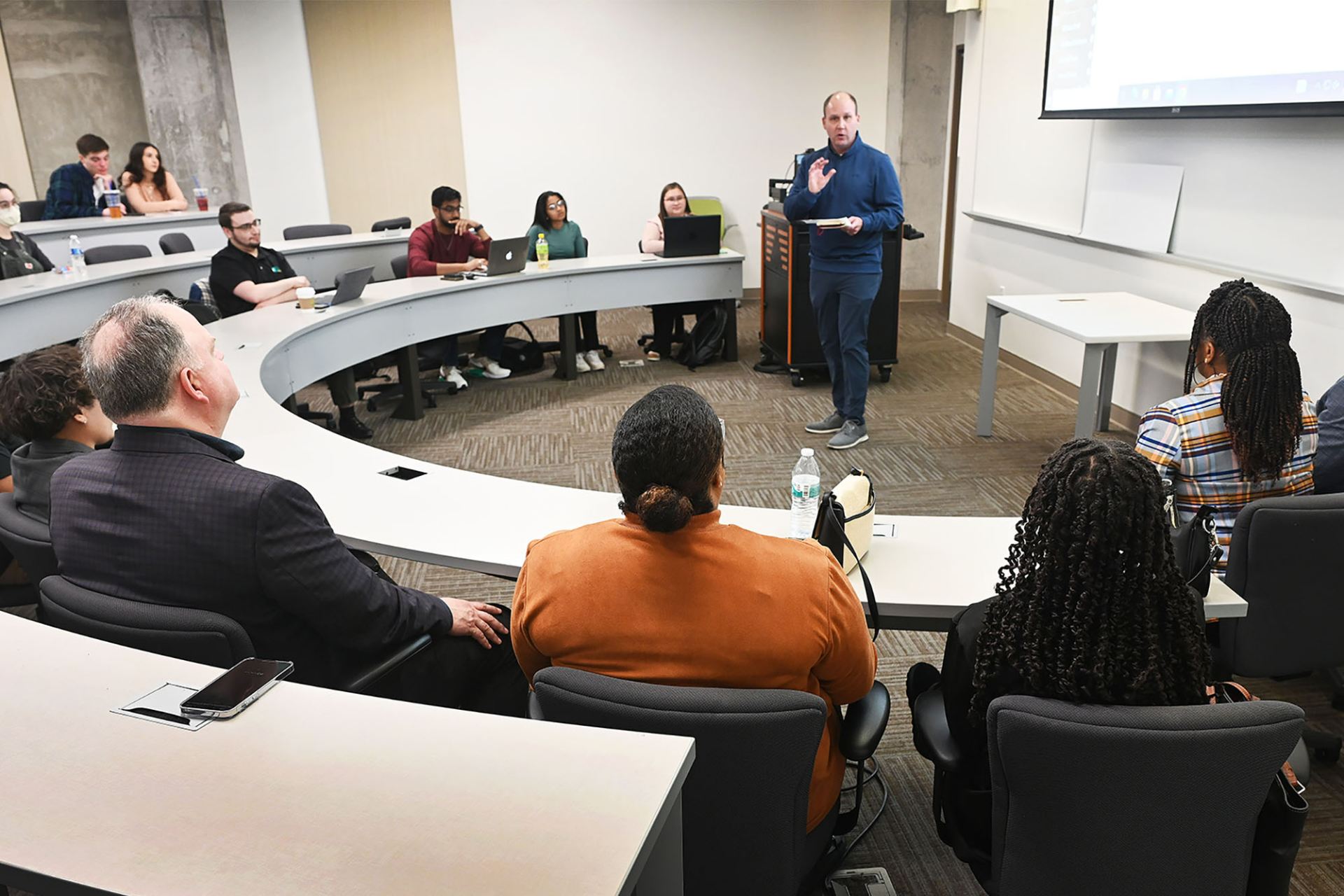Management Students Learn Firsthand About Power of Giving
By: Jeff Joiner | Jan. 19, 2024

As part of an innovative class project, University of Texas at Dallas students got a rare opportunity last fall to win $10,000 for a local youth leadership nonprofit by using their grant-writing skills.
Student teams in a management of nonprofit organizations class in the Naveen Jindal School of Management produced funding proposals to support the Alliance of Elite Youth Leadership (AEYL) in McKinney, Texas. One team’s application won $10,000 for the organization’s summer internship and apprenticeship program.

“When we visited AEYL, we didn’t have a full idea of what we were exactly writing about, but personally I have always been really passionate about youth,” said Wilson Ly BS’23, the winning team’s leader who graduated last fall with a degree in healthcare management. “What they do working with teenagers is really cool, and I came back and said, ‘We really need to prepare something good that’s going to be impactful for them and will really make a difference.’ I’m so proud that we were able to do that.”
In previous classes as part of the course’s fundraising section, Kyle Edgington PhD’13 assigned students to write mock grant applications to support nonprofits. But this time, thanks to funding from Mike Redeker MBA’97, MS’01 and his real estate development company McKinney East, Edgington made the assignment an actual grant-writing exercise with real money at stake.
“McKinney East is awarding the grant to AEYL so all the students in the class will be able to participate in seeing how their team’s proposal seeks funding and how that process works choosing a winning application,” said Edgington, vice president for development and alumni relations at UT Dallas who has taught the course for 10 years. “This is as close to a real exercise as the students could possibly get.”
Redeker explained to the students the importance of helping young people who participate in AEYL programs.
“This is a chance for you to focus on the impact that we have on our fellow human beings,” Redeker said. “If you impact a handful of people and those people impact a handful of people over the generations, you’re going to have a huge impact on society. A project like this gives you a chance to go change the world.”
AEYL founders Derrick and Ceretha Robinson also met with the students during their introduction to the assignment. The Robinsons started AEYL to develop programs to teach young people how to become successful community leaders.
AEYL has launched several programs designed to give teens opportunities that the Robinsons said they never had growing up in Arkansas. The programs focus on leadership and life-skills development and include summer internships and apprenticeships; career training; workforce placement; science, technology, engineering and mathematics; robotics exploration; and community engagement initiatives.
“If you impact a handful of people and those people impact a handful of people over the generations, you’re going to have a huge impact on society. A project like this gives you a chance to go change the world.”
Mike Redeker MBA’97, MS’01
The Robinsons are also raising money to build the AEYL Empowerment Center, which will include gym courts and space for community activities centered around AEYL’s programs.
In Edgington’s class, student teams were given the choice to write a grant proposal in support of the new Empowerment Center or for one of AEYL’s programs. Teams researched their chosen programs and visited with AEYL’s staff to learn about the nonprofit’s impact. They then wrote their proposals based on best practices in fundraising introduced during the course.
“I love learning the how and why of theories, but actually applying what we learned in the class was really exciting,” said Sarah Gifford BS’23, who graduated last fall with a degree in business administration. “Not only getting to learn how to do grant writing, but also actually writing a grant and potentially helping a local nonprofit with such an impact was so amazing to me.”
Edgington said even if his business students decide not to go into the nonprofit sector as a career, they have learned to appreciate the fundraising process and the importance of measuring the influence of organizations.
“They learn just how competitive the nonprofit fundraising landscape is,” he said. “And they learn how to measure the efficacy of philanthropic dollars and if those dollars are making an impact, because those dollars are scarce.”
Media Contact: Jeff Joiner, UT Dallas, 972-883-3931, jeff.joiner@utdallas.edu, or the Office of Media Relations, UT Dallas, (972) 883-2155, newscenter@utdallas.edu.





